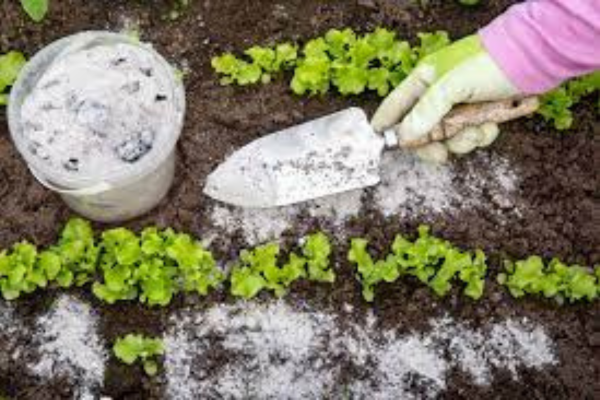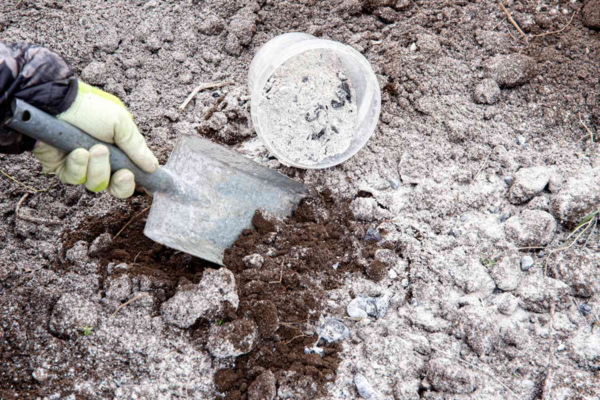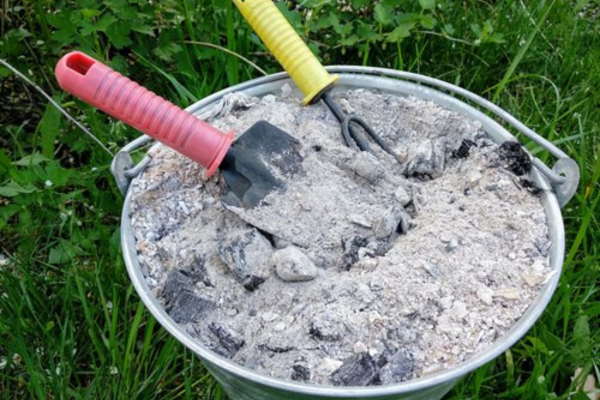In the world of modern agriculture, the push towards sustainable practices is more prevalent than ever. Among the myriad of options available to farmers aiming to enhance crop productivity while nurturing the environment, organic potassium fertilizer stands out as a cornerstone of ecological farming. This natural fertilizer plays a pivotal role not just in bolstering crop yields but also in maintaining the health of the soil and plants.
Potassium is a vital nutrient in plant growth, akin to the role of a multivitamin in human health. It regulates various physiological processes including water uptake, enzyme activation, and photosynthesis. The significance of organic potassium fertilizer in agriculture extends beyond just supplying nutrients; it fosters a holistic approach to farming that benefits both the crops and the ecosystem. The renowned agricultural scientist from SHANDONG LOYAL CHEMICAL CO.,LTD., Dr. Lee Chung, emphasizes, “Choosing organic potassium fertilizer is not just about feeding the plants; it’s about sustaining the future of farming.”
The integration of organic potassium fertilizer in agricultural practices ensures that the plants receive a balanced intake of essential nutrients, which are crucial for their growth and health. This introduction sets the stage for a deeper exploration into how organic potassium fertilizer can unlock the potential of plants and lead to more sustainable agricultural outcomes.

Understanding Potassium Fertilizer
Potassium fertilizer is an essential nutrient that significantly impacts plant health and crop yields. It stands in contrast to synthetic fertilizers, which often contain chemically formulated compounds that can lead to soil degradation and environmental pollution over time. Organic potassium fertilizer, on the other hand, is derived from natural sources such as kelp, composted fruit skins, and other plant residues. These organic sources not only supply potassium but also contribute organic matter to the soil, enhancing its overall quality and sustainability.
The key properties of organic potassium fertilizer include its ability to release nutrients slowly. This slow release ensures that potassium is available to plants over a longer period, reducing the risk of nutrient leaching and promoting a more steady growth pattern. Dr. Angela Hartfield, a soil expert, notes, “Organic potassium fertilizers help maintain the soil’s nutrient cycle, mimicking natural ecological processes much more closely than synthetic alternatives.”
The benefits of using organic sources of potassium are numerous. They enhance the water retention capacity of the soil, improve root development, and increase disease resistance in plants. Additionally, these fertilizers are less likely to cause environmental harm, as they do not introduce high levels of salts and chemicals into the soil and groundwater. By opting for organic potassium fertilizer, farmers and gardeners make a conscious choice to support ecosystem health and long-term agricultural productivity.
Benefits of Organic Potassium Fertilizer to Soil Health
The use of organic potassium fertilizer offers significant benefits not only to plants but also to the soil itself, which is a vital component of the agricultural ecosystem. One of the primary advantages of incorporating organic potassium into farming practices is its profound impact on soil structure and fertility.
Soil structure is critical for plant growth as it affects water infiltration, air penetration, and root development. When organic potassium fertilizer is applied, it enhances the aggregation of soil particles, creating a looser, more friable structure that allows for better root growth and easier water access. Dr. Samuel Johnston, a renowned agronomist, points out, “Organic potassium plays a pivotal role in building up soil structure, which can sustain more intensive farming without the negative impacts associated with synthetic fertilizers.”
Furthermore, the introduction of organic potassium into the soil improves its fertility by increasing the availability of nutrients. Potassium, being a catalyst for many plant biochemical processes, helps in the efficient conversion of other nutrients into usable forms, thereby enhancing the overall nutrient uptake by plants. This process not only maximizes the effectiveness of the fertilizer but also reduces the need for chemical additives, leading to a more balanced and natural soil ecosystem.
Moreover, organic potassium fertilizer contributes positively to the microbial environment within the soil. By providing a natural source of nutrients, it supports a diverse microbial population that plays a crucial role in organic matter decomposition, nutrient cycling, and natural soil detoxification processes. Dr. Rebecca Morse, a soil microbiologist, emphasizes, “Healthy soil microbiology with active nutrient cycling is essential for long-term agricultural sustainability, and organic potassium fertilizer is a key contributor to this health.”
The combined effects of improved soil structure, increased fertility, and enhanced microbial activity make organic potassium fertilizer an invaluable resource for sustainable farming practices. These benefits collectively contribute to a more robust soil system capable of supporting healthy plant growth and higher yields while maintaining the ecological balance.
Enhancing Plant Growth with Organic Potassium
Organic potassium fertilizer plays a crucial role in optimizing plant growth through several mechanisms. One of the primary ways it influences plant development is by enhancing water uptake and retention. Potassium regulates the opening and closing of stomata, which are small pores on the surface of leaves. This regulation not only helps in maintaining the water balance within the plant but also ensures that plants use water efficiently during photosynthesis and transpiration.
Dr. Harold Freeman, a plant physiologist, explains, “Potassium is vital for stomatal operation. It ensures that plants can adjust to varying water conditions, which is particularly crucial in areas prone to drought or irregular rainfall. By using organic potassium fertilizer, plants become more resilient to water stress and fluctuations, leading to steadier growth under environmental stresses.”
Furthermore, potassium plays a significant role in enhancing photosynthesis, the process by which plants convert light energy into chemical energy. It activates enzymes that are crucial for the production of ATP (adenosine triphosphate), which is the energy currency of cells. This activation not only boosts the efficiency of photosynthesis but also supports stronger growth and development. “Increased photosynthetic efficiency means more energy for growth and reproduction, which is particularly beneficial for crop yield and quality,” adds Dr. Freeman.
In addition to improving water management and photosynthesis, organic potassium fertilizer also increases nutrient efficiency. Potassium helps in the better uptake and assimilation of other essential nutrients like nitrogen and phosphorus, which are critical for plant health and growth. By optimizing nutrient use, plants can achieve higher nutritional status, which is directly linked to the quality of the fruits, vegetables, and grains they produce.
By enhancing water uptake, photosynthesis, and nutrient efficiency, organic potassium fertilizer significantly contributes to more robust and vigorous plant growth. This makes it an indispensable tool for farmers aiming to maximize both the quantity and quality of their agricultural products sustainably.
Organic Potassium’s Role in Disease Resistance
Potassium is not only crucial for the growth and development of plants but also plays a significant role in enhancing their resistance to diseases. The use of organic potassium fertilizer can fortify plants against various pathogens by strengthening their natural defense mechanisms.
One of the ways potassium contributes to disease resistance is by thickening the cell walls of plants. This makes it more difficult for pathogens to penetrate the cells and establish infections. Dr. Emily Carter, a plant pathologist, notes, “Enhanced cell wall strength provided by potassium is a key factor in preventing fungal and bacterial diseases. Organic potassium fertilizer helps plants develop tougher cell barriers, thereby reducing the incidence of disease.”
Additionally, potassium regulates the synthesis and activation of various enzymes that play a role in plant defense. These enzymes can detoxify harmful substances produced by pathogens during an attack, thus preventing damage to plant tissues. “Potassium’s role in enzyme activation is crucial for the systemic acquired resistance mechanism of plants, which is their way of ‘vaccinating’ themselves against future pathogen attacks,” explains Dr. Carter.
Moreover, adequate potassium levels help maintain the overall health and vitality of plants, making them less susceptible to stressors that could predispose them to infections. Stressed plants are often more vulnerable to diseases, but with sufficient potassium, they can maintain a stronger physiological status and fend off diseases more effectively.
The benefits of organic potassium fertilizer in disease resistance are particularly important for organic farming, where synthetic chemical treatments are limited or non-existent. By relying on potassium’s natural protective properties, organic farmers can manage plant health and reduce the reliance on pesticides, leading to healthier crops and a safer environment.

Application Tips for Organic Potassium Fertilizer
Applying organic potassium fertilizer effectively is crucial for maximizing its benefits to crops and soil. Here are some best practices to ensure that the application of this essential nutrient leads to optimal outcomes for various types of agriculture.
Timing and Dosage: It is important to apply potassium at the right time during the plant’s growth cycle to maximize its uptake and utility. For most crops, potassium is most beneficial before and during flowering stages when the demand for this nutrient peaks due to rapid growth and development. Dr. Thomas Greene, an agricultural consultant, advises, “The timing of potassium application should be synchronized with the crop’s phenological stages. For example, pre-planting incorporation or side-dressing during early bloom can significantly enhance the effectiveness of organic potassium fertilizer.”
Method of Application: There are several methods for applying organic potassium fertilizer, including broadcasting, banding, foliar application, and fertigation. Each method has its advantages depending on the crop type, soil condition, and available equipment. Broadcasting is suitable for large areas and before planting, while banding can provide a concentrated nutrient source near the plant roots. Foliar application, although less common for potassium, can be used for quick corrections during critical growth stages.
Soil Testing: Before applying potassium fertilizer, it is essential to conduct soil tests to determine the existing potassium levels and other soil characteristics. This information helps in deciding the appropriate amount of fertilizer needed, as excessive use can lead to nutrient imbalances and environmental issues. “Regular soil testing is imperative to tailor fertilizer practices to the specific needs of the soil and crop, ensuring that nutrient applications are both efficient and environmentally sustainable,” emphasizes Dr. Greene.
Integration with Other Practices: For best results, potassium fertilization should be integrated with other soil and water management practices. This includes maintaining proper pH levels, organic matter content, and moisture levels in the soil. Such integrated management helps enhance the efficiency of potassium uptake by plants and contributes to overall soil health.
Monitoring and Adjustments: After applying organic potassium fertilizer, it is important to monitor plant growth and soil health to assess the effectiveness of the fertilization program. Adjustments may be necessary based on observations and further soil tests to optimize the nutrient management strategy.
By adhering to these application tips, farmers and gardeners can ensure that their use of organic potassium fertilizer is both effective and sustainable, leading to healthier crops and improved soil conditions.
Conclusion
Throughout this exploration of organic potassium fertilizer, we’ve uncovered its multifaceted benefits for both plant growth and soil health. This natural fertilizer not only enhances crop yields and quality but also plays a pivotal role in sustainable agriculture by improving soil structure and fertility, increasing disease resistance, and supporting effective water and nutrient management.
The case studies and success stories shared underscore the practical advantages of transitioning to organic potassium fertilizer. Farmers who adopt this approach contribute to a healthier environment by minimizing reliance on synthetic chemicals and supporting the natural ecological processes within their soil ecosystems.
As we look to the future of farming, the importance of sustainable practices becomes increasingly clear. Organic potassium fertilizer offers a promising solution for those committed to ecological stewardship and the production of high-quality, nutritious crops. It is essential for the agricultural community to continue advancing these practices, encouraging widespread adoption and continual improvement.
In conclusion, adopting organic potassium fertilizer is not merely a farming practice; it is a commitment to a more sustainable and productive agricultural future. As Dr. Lee Chung from SHANDONG LOYAL CHEMICAL CO.,LTD. eloquently states, “Embracing organic potassium is an investment in our soil’s health and our planet’s future.” For farmers and gardeners ready to make this shift, the journey towards more sustainable agriculture with organic potassium fertilizer is not just beneficial but imperative.
FAQs: Common Questions About Organic Potassium Fertilizer
What is organic potassium fertilizer? Organic potassium fertilizer is derived from natural sources such as composted fruit peels, wood ash, or kelp, and is used to supply potassium to the soil in a form that is easily taken up by plants. Unlike synthetic fertilizers, it is free from chemical additives and supports sustainable farming practices.
Why is potassium important for plants? Potassium is crucial for plant health as it regulates vital functions such as water uptake, enzyme activation, and photosynthesis. It helps in improving drought resistance, enhancing nutrient absorption, and boosting disease resistance, contributing to overall plant vigor and productivity.
How does organic potassium fertilizer benefit the soil? Organic potassium adds not only potassium but also organic matter to the soil, which improves soil structure, promotes microbial activity, and enhances nutrient availability. This contributes to better soil health and reduced need for chemical inputs.
Can organic potassium replace synthetic fertilizers completely? In many cases, organic potassium can effectively replace synthetic potassium fertilizers, especially in organic farming systems. However, the specific needs and conditions of the soil should guide the decision, supported by regular soil testing.
How often should organic potassium fertilizer be applied? The application frequency depends on several factors including the crop type, growth stage, soil condition, and existing potassium levels. It’s generally recommended to apply at key growth stages such as planting and flowering, based on soil test results.

References
Comfrey: Known for its high potassium content, comfrey is beneficial for tomatoes, potatoes, and peppers. It can be used as mulch or turned into a liquid fertilizer
Banana Peels and Eggshells: Banana peels are especially rich in potassium. They can be dried and powdered for direct soil application or used to make a liquid fertilizer
Wood Ash: Wood ash provides a quick-release source of potassium. However, it should be used sparingly as it can also raise the soil pH rapidly
Greensand: This is a slow-release source of potassium which also improves the water-holding capacity of the soil. It’s especially suitable for long-term potassium supplementation
Kelp Meal: While low in potassium compared to other fertilizers, kelp meal provides a broad range of trace minerals and can boost seedling growth and reduce transplant shock






